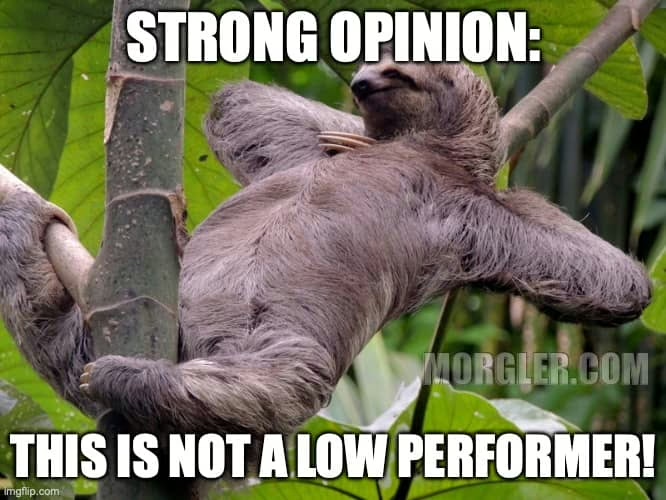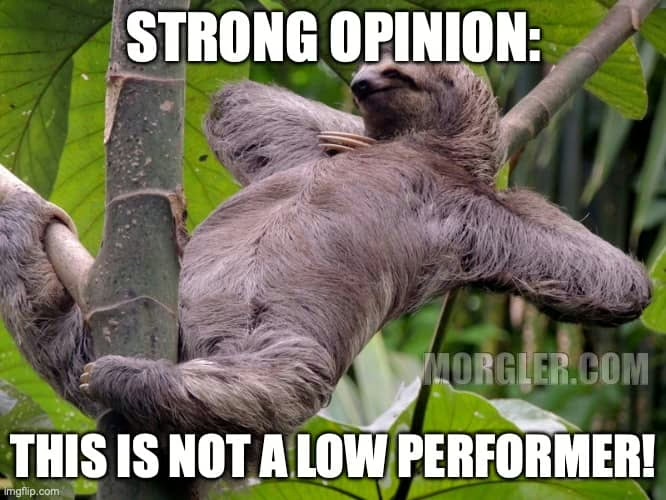The term “low performer” is not just outdated — it’s destructive.
Labeling people this way reveals an antiquated view of human beings that not only demotivates employees but actively damages your bottom line.

The Problem with the “Low Performer” Label
Calling someone a “low performer” suggests that underperformance is an inherent personal flaw — rather than a symptom of environment, leadership, or system design. It’s the managerial equivalent of saying, “The fish can’t climb the tree — it must be lazy.”
Modern science tells a different story:
Psychologists Edward Deci and Richard Ryan’s Self-Determination Theory tells us that intrinsic motivation — fueled by autonomy, competence, and relatedness — drives performance. When these needs aren’t met, performance drops. Not because people are “bad,” but because the system is.
By labeling people instead of fixing systems, you rob yourself of real solutions.
The Legacy of Taylorism: Managing Humans Like Machines
The obsession with “low performers” traces back to Frederick Taylor’s scientific management, which treated workers like interchangeable machine parts.
Thinking and doing were separated: the manager plans, the worker executes. This significantly impacts our autonomy drive. And:
In knowledge work, doing is thinking. You can’t split the two without crushing innovation, creating inefficiencies, and causing problems.
Managers clinging to Taylorism (and the separation of thinking and doing) today suffocate autonomy, stifle creativity, and — ironically — create the very underperformance they fear.
Measuring the Wrong Things: The Danger of Proxy Metrics
An additional issue is the focus on vanity metrics. Instead of measuring real outcomes, many companies still track proxy metrics like hours worked or story points completed.
But knowledge work doesn’t follow a linear, mechanical process. Sometimes, an employee grinds for eight hours and delivers a mediocre result. Then, in a 30-minute burst of creative clarity the next day, they produce something game-changing.
Value creation is nonlinear. It comes in unpredictable surges, not in steady, controllable trickles.
Measuring hours encourages appearances over impact — and invites Goodhart’s Law: “When a measure becomes a target, it ceases to be a good measure.”
Real Underperformance: A Matter of Context, Not Character
Of course, genuine skill mismatches or role misfits exist. Not every person is the right fit for every environment. But even then, the problem isn’t a flawed human — it’s a flawed fit.
A fish is not a bad fish because it can’t climb trees. It’s just in the wrong ecosystem.
The real leadership question is not, “Who should we fire?” but rather:
- Can we upskill this person?
- Can we find a better-fitting role?
- Or — if neither is feasible — can we part ways respectfully and wisely for mutual benefit?
Lessons from the Military: Autonomy Saves Lives
Even the military — often cited as the epitome of command-and-control — has evolved. The concept of Mission Command entrusts frontline units with autonomy to adapt to dynamic situations. Generals set the mission, but soldiers make the decisions.
Because they know:
- Top-down micromanagement is too slow.
- Frontline autonomy saves lives.
If even the military learned that thinking and doing must stay together, why are so many corporate managers still stuck in 1911?
Slack Is Not Waste — It’s a Prerequisite for Excellence
Obsessed with squeezing out every ounce of efficiency, many managers see slack — idle time, unstructured creativity — as waste. But that’s like seeing open lanes on a highway as waste. A 100% utilized freeway is a traffic jam.

Slack isn’t laziness. It’s the breathing room for innovation, reflection, and true high performance.
Google famously encourages experimental projects — knowing most will fail. The few that succeed (like Gmail or Google Maps) more than justify the “waste.”
High-performing knowledge work needs slack and burstiness. They are features, not bugs.
Stop Labeling, Start Leading
If you want a truly high-performing organization, stop slapping cheap labels like “low performer” on complex human beings.
Instead:
- Focus on real outcomes, not fake proxies.
- Invest in development and fit, not blame.
- Build environments that ignite intrinsic motivation, not fear.
- Protect slack and autonomy, not just appearances of busyness.
You don’t fix a garden by yelling at the plants. You fix the soil.
It’s time to stop managing humans like machines. And start leading them like people.
A few sources:

